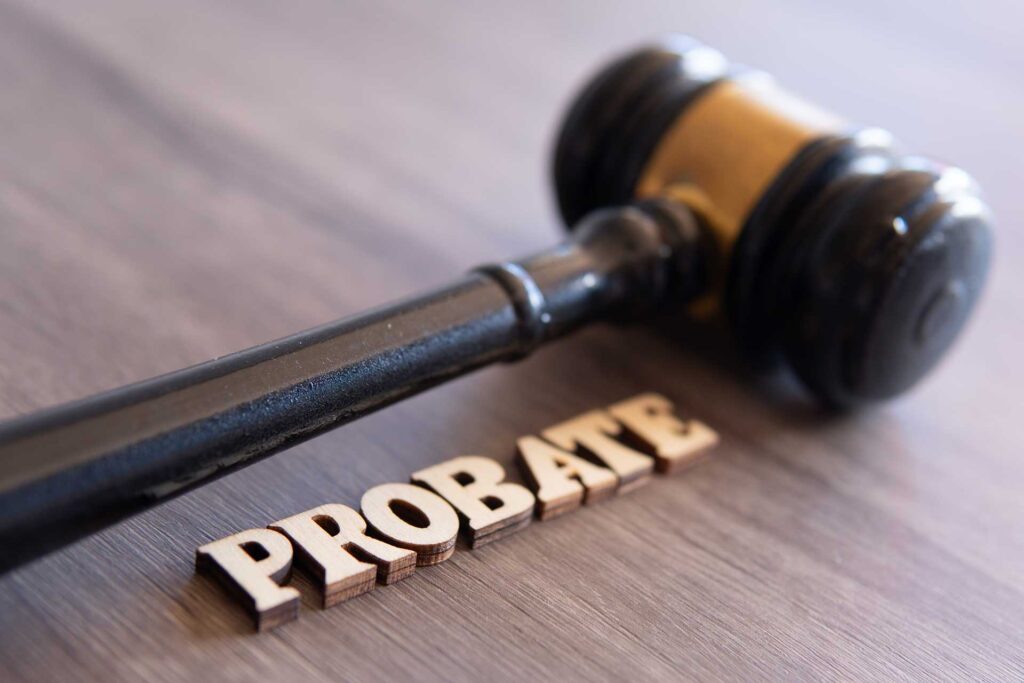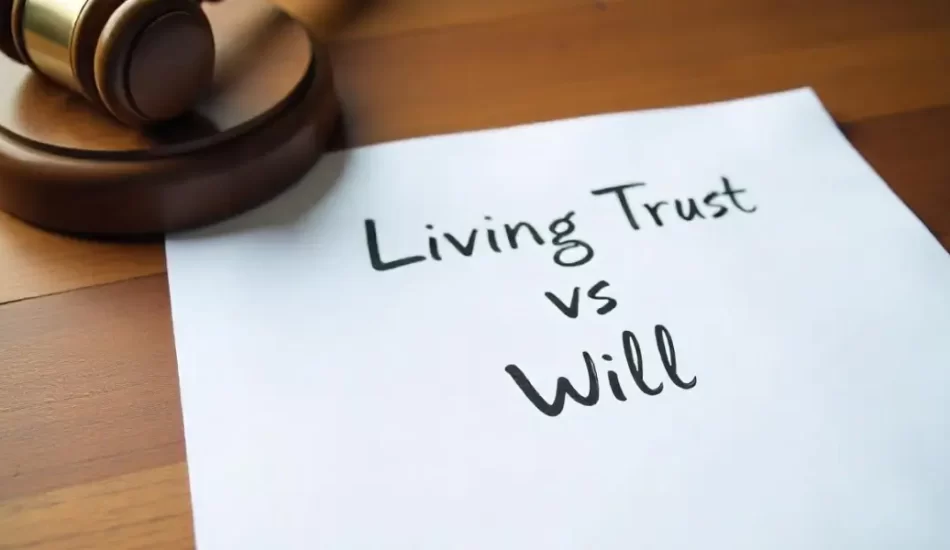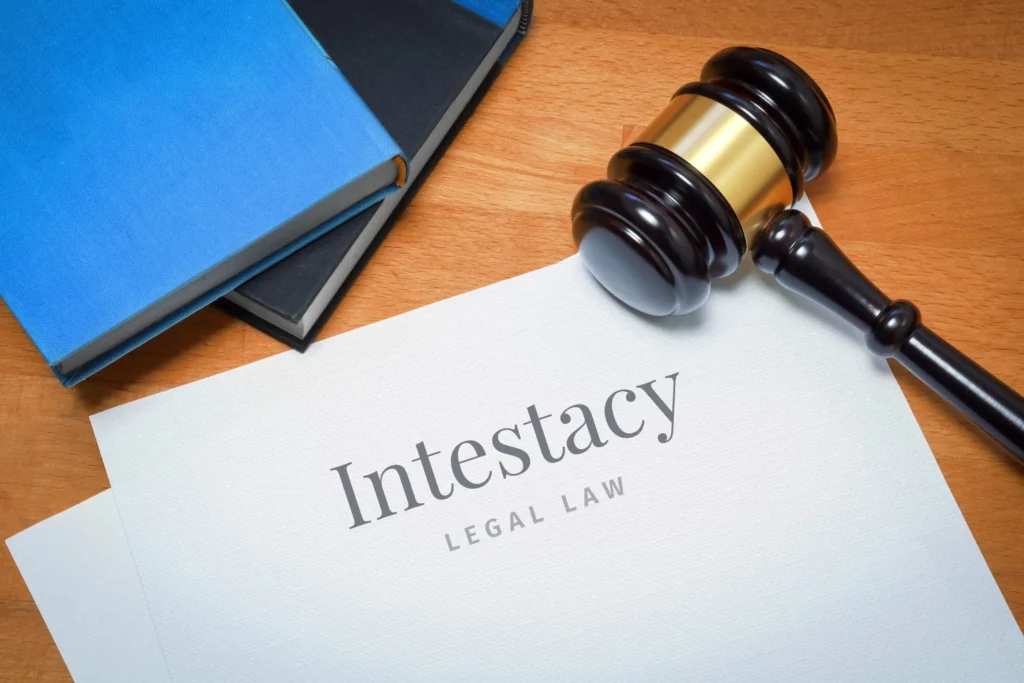If you’ve ever served as a Power of Attorney, you may wonder: can POA probate a will in Texas? This question comes up often when loved ones pass away, and people assume that holding Power of Attorney (POA) gives them continuing legal authority after death. But Texas probate law draws a very clear distinction between the powers of a POA and those of an executor. Understanding the key differences between these roles can prevent costly legal missteps during theprobate process.
In this comprehensive guide, we’ll dive into whether a POA can probate a will in Texas, explore real-life situations where confusion occurs, and explain the legal authority of both roles. By the end, you’ll have a crystal-clear understanding of how Texas probate works and why POA and executor authority are entirely separate.

Understanding the Basics: What Is Power of Attorney?
Before we answer can POA probate a will in Texas, let’s quickly review what a POA actually does. A Power of Attorney is a legal document where one person (the principal) authorizes another (the agent or “attorney-in-fact”) to act on their behalf. Texas recognizes several types of POA:
- Durable Power of Attorney: Survives the principal’s incapacity but automatically terminates upon their death.
- Medical Power of Attorney: Allows the agent to make healthcare decisions while the principal is alive but unable to make decisions.
- Limited Power of Attorney: Grants narrow, specific powers for certain tasks, like sellingreal estate.
Here’s the key point: every POA in Texas automatically ends at the principal’s death. Once the individual passes away, the POA agent loses all authority. This distinction is central to why the question can POA probate a will in Texas often leads to confusion.
What Is Probate in Texas?
Probate is the legal process of proving and administering a deceased person’s will under Texas law. This process involves:
- Validating the will in court
- Appointing an executor (also called a personal representative)
- Identifying and inventorying estate assets
- Paying debts, taxes, and claims
- Distributing remaining property to heirs or beneficiaries
Only a court-appointed executor has legal authority to manage these tasks. Simply holding POA does not give you permission to initiate or manage probate. This is why understanding can POA probate a will in Texas requires a careful look at how legal authority changes after death.
Real-Life Story: Susan’s Costly Assumption
Susan acted as her father’s POA for many years, paying bills, managing his accounts, and handling his business affairs as his health declined. When he passed away, she assumed that because she’d handled everything before his death, she could continue managing the estate without involving probate court. She began selling assets and distributing funds to her siblings, believing she was honoring her father’s wishes.
Unfortunately, this created serious legal problems. Since her father’s POA ended upon death, Susan had no authority to act after his passing. The court required her to halt all transactions, undo sales, and restart the probate process properly with an appointed executor. What Susan thought was a simple extension of her prior duties became a costly legal headache.
Susan’s story shows exactly why the question can POA probate a will in Texas matters so much.
Can POA Probate a Will in Texas? The Short Answer
No, a Power of Attorney cannot probate a will in Texas. Once the person who granted the POA dies, the document is no longer valid. Only a court-appointed executor (or administrator if no will exists) has authority to handle probate matters in Texas.
Even if the POA was granted broad financial powers before death, those powers do not continue into the probate phase. If the POA agent is also named as executor in the will, they must still go through the formal probate process and be officially appointed by the court before taking any estate-related actions.
Why Does the POA Lose Power After Death?
Texas law is very clear that POA authority exists only while the principal is alive. The rationale is simple:
- The person granting the authority (the principal) can only empower someone to act on their behalf while alive.
- After death, legal authority over assets transfers to the estate, not to any individual by default.
- The probate court controls this transition of authority to ensure proper asset management, debt payment, and lawful distribution to heirs.
This legal structure protects heirs, creditors, and beneficiaries. Allowing a POA to act after death without court oversight would create opportunities for fraud, disputes, and abuse of power.
Executor Authority: The Key Role in Texas Probate
While can POA probate a will in Texas has a clear answer, understanding the executor’s role helps explain the larger picture.
An executor is the person named in the will to carry out the deceased’s instructions. Unlike a POA, which is granted by the individual before death, executor authority is granted by the court after death through a process called “qualification.” This process includes:
- Filing the will with the probate court
- Receiving Letters Testamentary, which give legal authority to act
- Taking an oath of office

The executor then manages all aspects of the estate: locating assets, paying debts, handling tax matters, and ultimately distributing the inheritance as directed by the will.
Key Differences Between POA and Executor Authority in Texas
To fully answer can POA probate a will in Texas, it’s essential to understand the differences between a Power of Attorney and an executor. A Power of Attorney is created through a legal document by the individual and is only valid while the person is alive. It allows the agent to handle daily matters such as finances and healthcare decisions but automatically ends at death. The authority granted under POA does not extend beyond the principal’s lifetime, making it invalid once probate is necessary.
In contrast, an executor, officially appointed by the probate court after death, gains authority only once the court issues the Letters Testamentary. The executor’s responsibilities include administering estate assets, paying debts, and ensuring the will is properly executed. Unlike POA agents, executors are legally required to initiate probate and follow strict court procedures. Recognizing these separate roles helps families avoid costly legal errors during estate administration.
Why Confusion Happens: The Common Myths
The reason so many people ask can POA probate a will in Texas is because the roles often overlap before and after death:
- Many POA agents are also named as executors in the will.
- The person trusted to manage finances before death seems like a natural choice to handle things afterward.
- Families often assume informal authority continues without legal interruption.
However, Texas probate law strictly separates these roles. Even if you held POA for years, you cannot touch estate assets after death until the court officially appoints you as executor.
What Happens If There’s No Will?
If no will exists, the estate is considered intestate, and the probate court appoints an administrator instead of an executor. The administrator performs the same role: handling assets, debts, and distributions according to Texas intestacy laws.
Just like with executors, POA agents have no legal authority to act after death without court appointment as administrator. Even with years of responsible POA service, you must follow Texas probate laws to gain post-death authority.
Real-Life Story: Jim’s POA Ended Before He Could Help His Aunt
Jim’s elderly aunt gave him POA to manage her finances when she became ill. He handled her bills, sold property, and protected her investments for years. When she unexpectedly passed away, Jim assumed he could continue making decisions as he always had.
But because she died without a will, Jim had no legal authority to act until the court appointed him as administrator. Texas law required formal probate proceedings, notices to heirs, and a court-supervised process. Although Jim eventually became administrator, the delay cost the estate both time and money.
Jim’s situation is another real-world reminder that can POA probate a will in Texas always requires a legal answer rooted in probate court authority.
Can POA Help Prepare for Probate Before Death?
While a POA agent cannot probate a will in Texas after death, there are ways a POA can help before death to simplify probate later:
- Organizing financial documents and asset lists
- Managing property titles, bank accounts, and legal paperwork
- Keeping tax records up to date
- Consulting with estate planning attorneys to prepare for a smooth probate process

Though POA authority doesn’t extend past death, proactive financial management during life can make the executor’s job far easier after death.
The Dangers of Acting Without Probate Authority
Attempting to handle estate matters without court appointment as executor or administrator is dangerous under Texas law:
- You may be personally liable for mishandling estate funds.
- Unauthorized asset sales may be reversed by the court.
- Beneficiaries or creditors may sue for damages.
- Criminal charges may apply for certain unauthorized transactions.
Even with the best intentions, acting on expired POA authority after death creates legal exposure. This is why every POA agent should ask early: can POA probate a will in Texas? The answer always leads back to the probate court.
Real-Life Story: The Family Rift Over Unauthorized POA Actions
In one Dallas family, the eldest brother held POA for their elderly mother. After her passing, he continued paying bills and selling assets without opening probate, believing he was honoring her wishes. His siblings sued, claiming he misused funds and acted without authority.
The legal battle tore the family apart, drained the estate’s assets, and resulted in a full court-ordered accounting. What began as well-meaning POA management ended in bitter probate litigation.
Can POA Ever Replace Probate in Texas?
Occasionally, proper estate planning can minimize probate. Tools like:
- Revocable Living Trusts
- Transfer on Death Deeds
- Beneficiary designations on accounts
can allow certain assets to pass outside of probate. However, POA authority itself cannot bypass probate after death. These strategies must be implemented before death, often with help from estate planning professionals.
Key Takeaways: Can POA Probate a Will in Texas?
- No, POA authority automatically ends at death in Texas.
- Only a court-appointed executor or administrator can handle probate.
- POA and executor roles are entirely separate legal powers.
- Attempting to act under POA after death creates legal and financial risk.
- Proper estate planning can simplify probate but cannot replace it through POA authority.

Final Thoughts: Avoiding Costly Mistakes Starts with Understanding
The confusion surrounding can POA probate a will in Texas is extremely common—but entirely avoidable. Understanding the strict legal boundaries between POA and executor authority prevents costly mistakes, family disputes, and unnecessary litigation.
If you’ve served as POA for a loved one, the responsible step after their passing is to consult a probate attorney immediately. With proper legal guidance, you can navigate the probate process smoothly and honor your loved one’s wishes lawfully and confidently.









